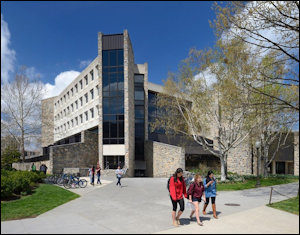As the 150th anniversary of Virginia Tech’s founding approaches, university officials are thinking about how to tell the story of the institution’s past. At the University of Virginia and Washington & Lee University, reflections upon the institutions’ histories have been the occasion for self-flagellation over the sins of ancestors who participated in slavery and segregation. While it is proper to acknowledge ugly aspects of the past, nothing useful comes from wallowing in self-abasement.
Judging from recommendations submitted by a 24-person history council described in today’s Roanoke Times, Tech will likely strike the right balance between candor about the past and wallowing in it.
In a nod to contemporary PC sensitivities, the council proposed erecting a work of outdoor art to honor the Native Americans who lived in the area before white settlers arrived. It also proposed an expansion of VT Stories, an existing oral history project, which collects stories from a broad cross-section of the Virginia Tech community.
Last year President Timothy Sands initiated an inquiry into the legacy of Confederates at Virginia Tech. The university has several buildings — McBryde, Vawter and Lane halls — named for men who fought for the South. John McLaren McBryde, sometimes called the “father of VPI,” enlisted in 1861 before the attack on Fort Sumter. Charles Erastus Vawter Sr. fought in the Stonewall Brigade. James Henry Lane was a brigadier general who commanded the 28th North Carolina infantry.
The council decided not to recommend renaming any buildings. Said historian Peter Wallenstein: “Worrying about what someone did as a 20-something member of the Confederate military really was not on the forefront of our minds.”
Council Chairman Bob Leonard, a performing arts professor, hit a pitch-perfect note: “The council strongly believes that previously silent stories must be voiced, such as those of under-represented and historically marginalized groups, and that complicated histories not be hidden, but instead, be related in full context.”
Add to the history. Contextualize the history. Don’t obliterate the history.


Leave a Reply
You must be logged in to post a comment.